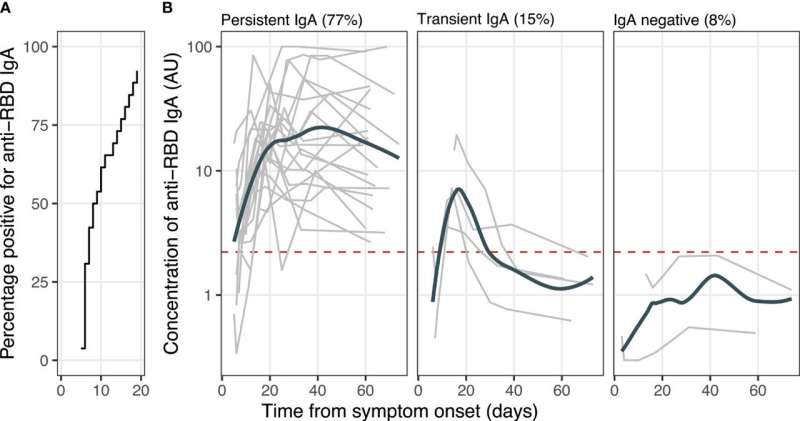Study shows COVID-infected mothers' breastmilk provides infants with antibodies

Mothers who breastfeed provide antibodies to their infants that can provide natural protection against the coronavirus that causes COVID-19, a team of researchers reported.
The new report expands earlier findings that showed the milk of breastfeeding women infected with SARS-CoV-2 did not contain the virus.
Their results support recommendations encouraging lactating women to continue breastfeeding during and after COVID-19 illness, the researchers said.
The expanded study included more than 60 women who provided samples up to two months after their COVID-19 diagnoses, said Michelle K. "Shelley" McGuire of the University of Idaho. She led the study with University of Rochester Medical Center colleague Antti E. Seppo.
The team included researchers from the U of I; Washington State University; University of Rochester Medical Center; University of California, San Francisco; Brigham and Women's Hospital; University of Arkansas for Medical Sciences; and Tulane University. The journal Frontiers in Immunology published their report Dec. 23.
"What was really important was those antibodies remained elevated in most of those women for up to two months," McGuire said. "It just added confidence that even if you have COVID, breastfeeding is the right thing to do."
The team tested the breastmilk samples for immunoglobulin A antibodies specific to the spike protein in the novel coronavirus responsible for the pandemic.
The tests showed three-quarters of the women continued to produce the antibodies in breastmilk for up to two months with some beginning as early as within a week of their COVID-19 diagnosis.
The researchers said the antibodies in breastmilk likely provided the women's infants with a lasting source of passive immunity.
The women also submitted swabs from breast skin before and after washing. Although no SARS CoV-2 virus was detected in milk, 29 percent of skin swabs tested positive for SARS CoV-2 genetic material (RNA) before washing. Only two of 29 swabs, 6 percent, tested positive after washing. The researchers attributed the presence of the viral RNA to coughing by the women or household sources.
The researchers stressed that they found no evidence of live virus or reason to be concerned about this finding. The bottom line stayed the same: Breastfeeding during COVID-19 is not only safe for infants, it is likely protective, McGuire said.
More information: Ryan M. Pace et al, Milk From Women Diagnosed With COVID-19 Does Not Contain SARS-CoV-2 RNA but Has Persistent Levels of SARS-CoV-2-Specific IgA Antibodies, Frontiers in Immunology (2021). DOI: 10.3389/fimmu.2021.801797


















